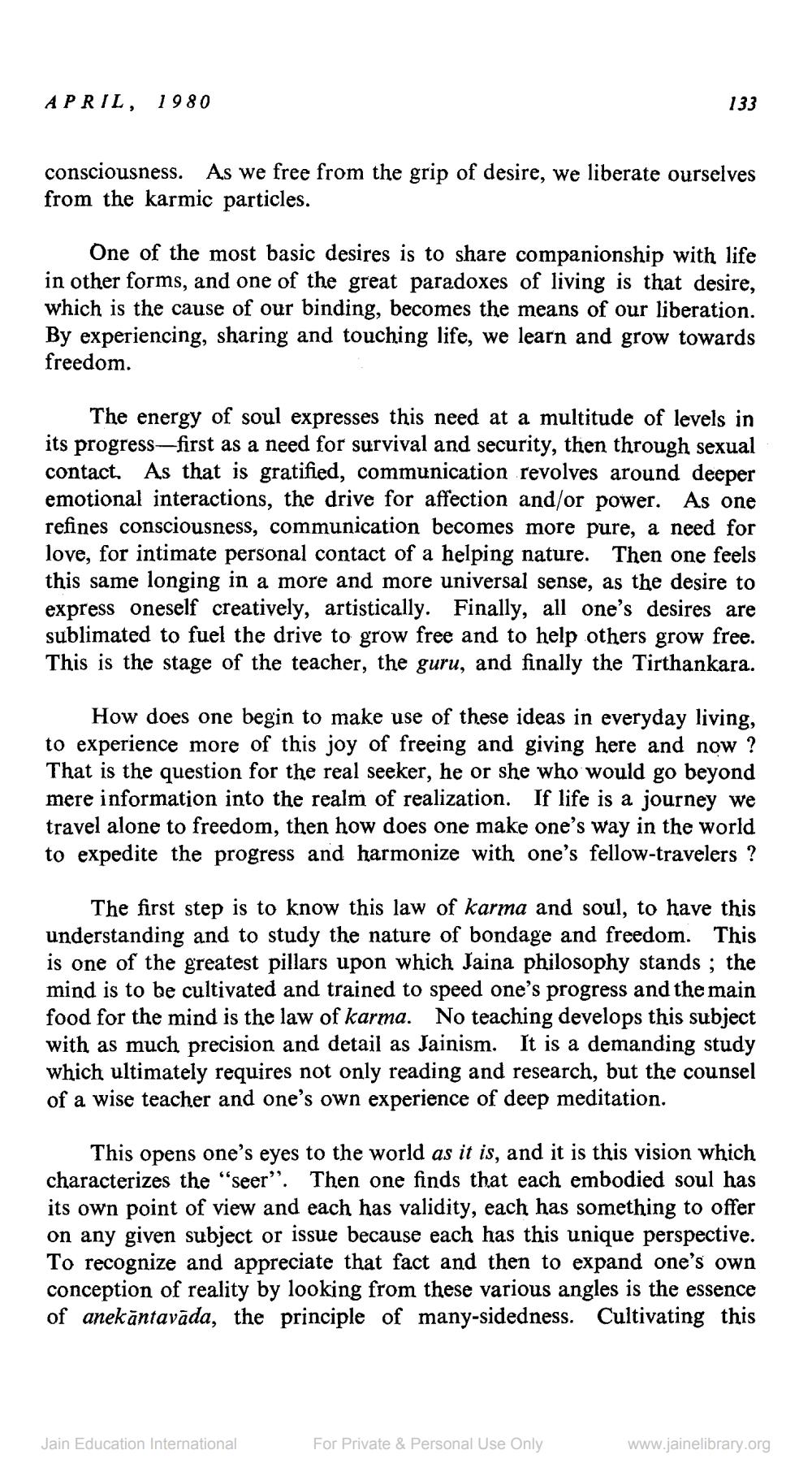________________
APRIL, 1980
consciousness. As we free from the grip of desire, we liberate ourselves from the karmic particles.
133
One of the most basic desires is to share companionship with life in other forms, and one of the great paradoxes of living is that desire, which is the cause of our binding, becomes the means of our liberation. By experiencing, sharing and touching life, we learn and grow towards freedom.
The energy of soul expresses this need at a multitude of levels in its progress-first as a need for survival and security, then through sexual contact. As that is gratified, communication revolves around deeper emotional interactions, the drive for affection and/or power. As one refines consciousness, communication becomes more pure, a need for love, for intimate personal contact of a helping nature. Then one feels this same longing in a more and more universal sense, as the desire to express oneself creatively, artistically. Finally, all one's desires are sublimated to fuel the drive to grow free and to help others grow free. This is the stage of the teacher, the guru, and finally the Tirthankara.
How does one begin to make use of these ideas in everyday living, to experience more of this joy of freeing and giving here and now ? That is the question for the real seeker, he or she who would go beyond mere information into the realm of realization. If life is a journey we travel alone to freedom, then how does one make one's way in the world to expedite the progress and harmonize with one's fellow-travelers ?
The first step is to know this law of karma and soul, to have this understanding and to study the nature of bondage and freedom. This is one of the greatest pillars upon which Jaina philosophy stands; the mind is to be cultivated and trained to speed one's progress and the main food for the mind is the law of karma. No teaching develops this subject with as much precision and detail as Jainism. It is a demanding study which ultimately requires not only reading and research, but the counsel of a wise teacher and one's own experience of deep meditation.
This opens one's eyes to the world as it is, and it is this vision which characterizes the "seer". Then one finds that each embodied soul has its own point of view and each has validity, each has something to offer on any given subject or issue because each has this unique perspective. To recognize and appreciate that fact and then to expand one's own conception of reality by looking from these various angles is the essence of anekāntavāda, the principle of many-sidedness. Cultivating this
Jain Education International
For Private & Personal Use Only
www.jainelibrary.org




